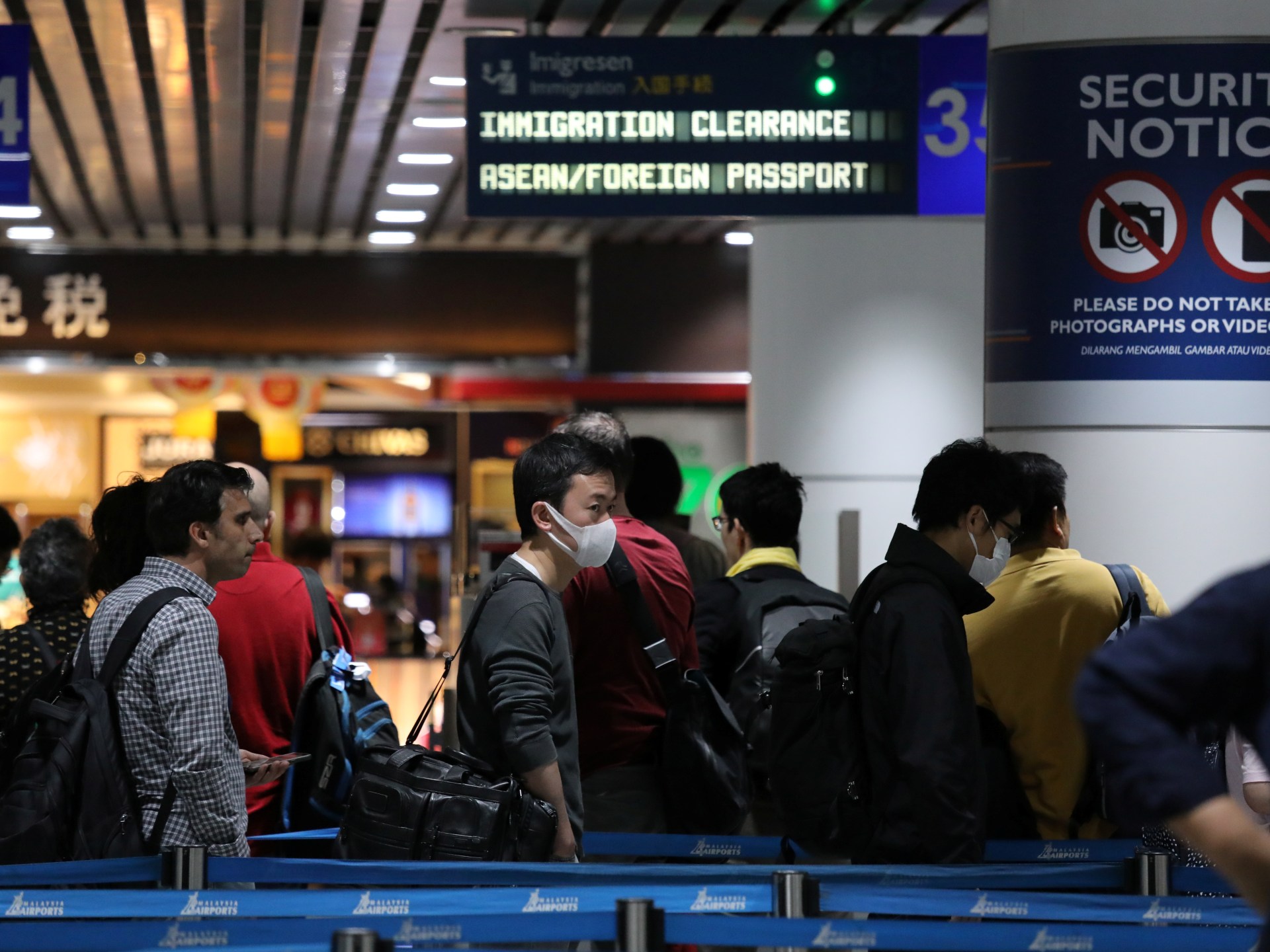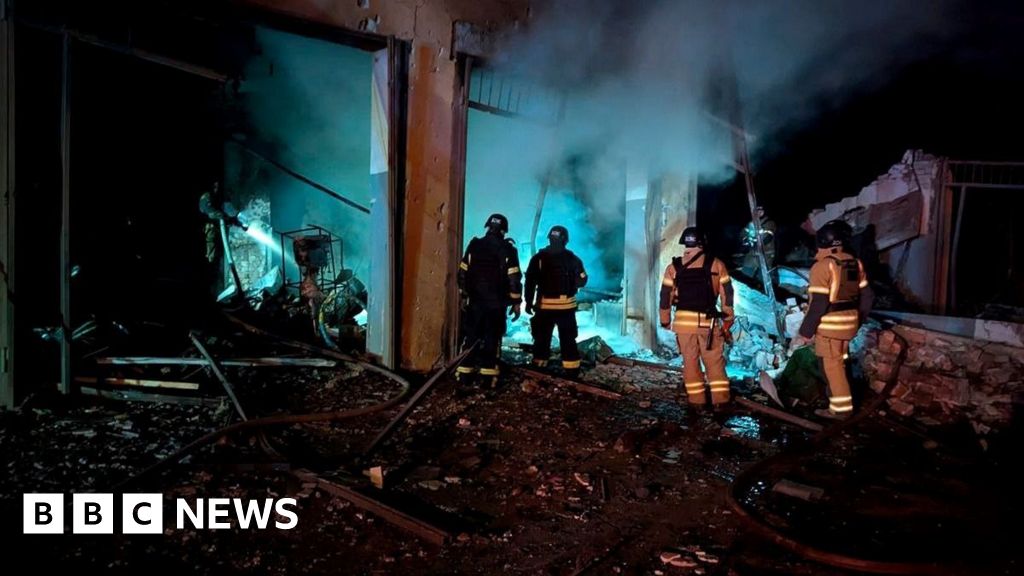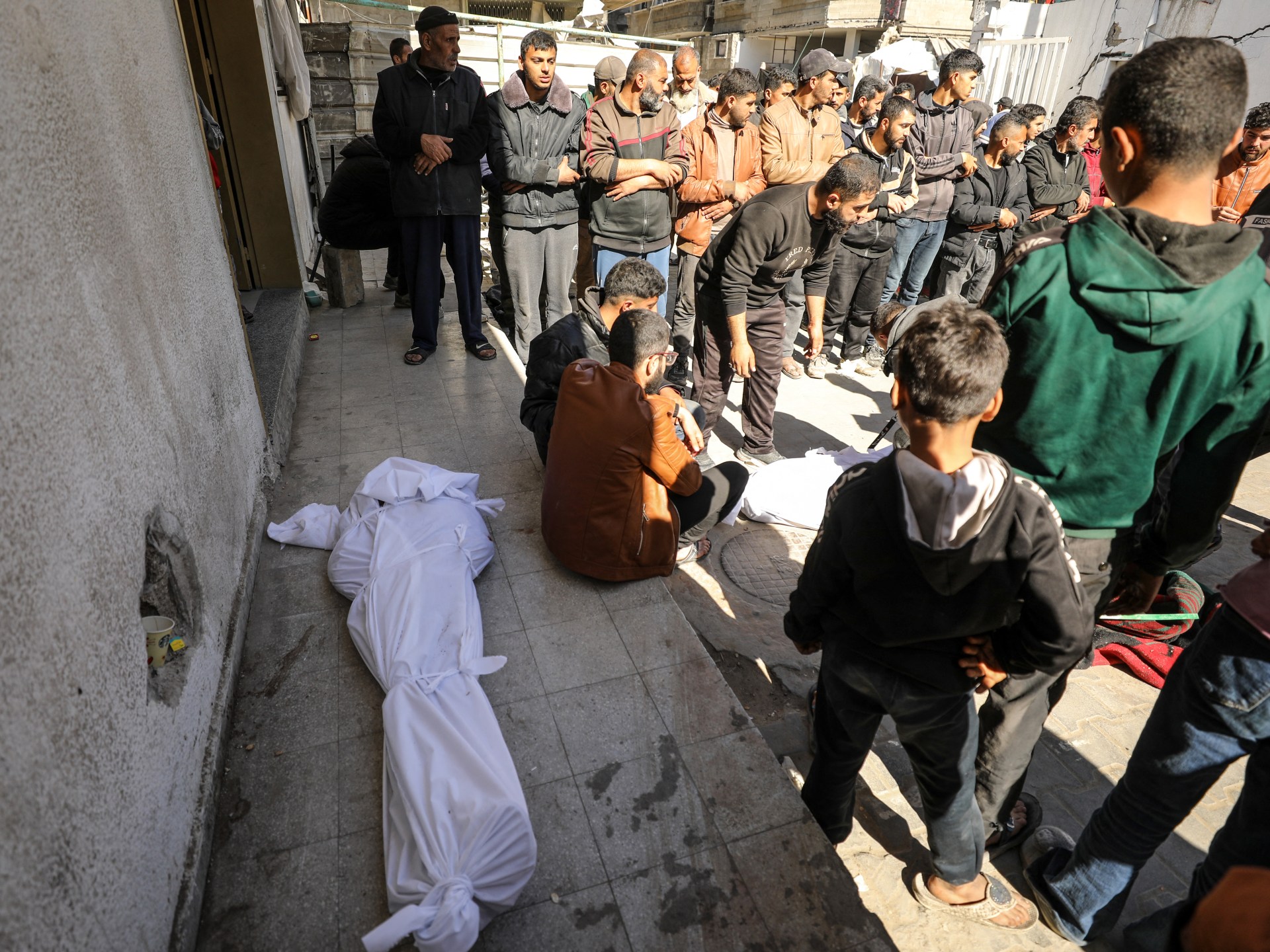Malaysia’s airport fee hikes leave bad taste in travellers’ mouths | Tourism News
Kuala Lumpur, Malaysia – Entrepreneur Jehan Abu Bakar is fuming that she will soon have to pay more in airport fees whenever she flies from her home in Malaysia to other countries in Southeast Asia.
Jehan, the founder of the organic soap company LeStarry Natural, said any increases should be commensurate with the facilities provided but Kuala Lumpur International Airport’s services, from the WiFi to the immigration procedures, are lacking.
“Baggage clearance that takes forever is also an issue. More immigration counters should be opened to reduce long waits in queue – this is also part of the services,” Jehan told Al Jazeera.
“Let’s not talk about the absence of the train – that is a big one,” she added, referring to the suspended Aerotrain that connects the airport’s two terminals, KILA 1 and KILA 2.
The ageing Aerotrain has been offline since last year to undergo upgrades and is scheduled to commence operations either by the end of this year or, at latest, March 2025, according to Transport Minister Anthony Loke.
“When can we see some improvement? Hike [fees] and remain the same? Such a shame,”Jehan said.
Lawyer Lim Wei Jiet agrees.
“If the service at our airports has been reliable and good so far, I don’t think many Malaysians would mind. However, it’s clear this is not the case,” Lim told Al Jazeera. “One obvious disappointment being the breakdown of the (Aerotrain) train at KLIA I, which has not been repaired to date even after many months.
“This is frankly an embarrassment to Malaysia, which proclaims itself as a tourism hub. I think Malaysians deserve to ask why there is a need to increase the service charge when the service provided thus far is sub-par,” Lim added.
Lim said that while KLIA 1 could claim to rank among the best airports out there a decade ago, it is now showing signs of wear and tear.
“I dislike comparing with Singapore on every issue but it does sting as a Malaysian to see Singapore’s Changi Airport… which is objectively much better functionally and aesthetically compared to KLIA 1,” Lim said.
From June 1, passengers departing from the KLIA 1 will have to pay 73 ringgit ($15.5) to travel to any of the nine other countries that make up the Association of Southeast Asian Nations (ASEAN), up from 35 ringgit ($7.41) currently.
Travel outside of ASEAN will remain at the current rate of 73 ringgit ($15.5).
Travel to ASEAN countries from KLIA 2, where the budget carrier Air Asia operates, will rise from 35 ringgit ($7.41) to 50 ringgit ($10.60).
However, travel beyond ASEAN from KLIA 2 will get cheaper, with the service fee reduced from 73 ringgit ($15.5) to 50 ringgit ($10.6).
The Malaysian Aviation Commission said the fee increases were necessary to “support the aviation sector’s recovery and adaptability in the post-Covid-19 pandemic environment”.
Not everyone takes issue with the revised fees.
Carmelo Ferlito, an Italian economist who travels frequently from his home in Kuala Lumpur to Asia and Europe, believes the price hikes and the facilities at KLIA 1 are still acceptable.
“It seems to me the increases remain very much within a tolerable range,” Ferlito, who mostly travels to Milan and his wife’s home city of Jakarta, told Al Jazeera.
“Despite not having restored the Aerotrain service, KLIA 1 remains a pretty good airport when compared to its regional peers. It is much more comfortable than Bangkok and Manila for sure,” Ferlito said.
“I think that travelling frequently gives a better perspective and if you have been to Manila, Bangkok, Dhaka, Colombo, Lahore, etc… well, then you start really thinking that it is great to be at KLIA 1,” he added.
KLIA 1 opened in 1998 and was designed by the renowned Japanese architect Kisho Kurokawa, the brains behind Kansai Airport, the world’s first floating airport, in Japan’s Osaka.
KLIA 2, the low-cost carrier terminal, began operations in 2014.
Despite the price hikes, Malaysia’s airport charges are still lower than some regional peers, including Thailand.
Airports of Thailand (AoT) is set to increase passenger service charges at six international airports by 30 baht ($0.82), to 730 baht ($20.2), per person from April 1 to cover the costs of a new common operating system for airlines.
Jacqueline Fong, who shuttles between Kuala Lumpur and Kuching, Sarawak, on an almost weekly basis and makes about half a dozen international trips a year, also does not see a problem with the hikes.
“For me, if flight tickets are still dynamically priced, I should still be able to purchase flight tickets within my travel budget and that’s inclusive of the airport passenger charges,” Fong, the founder of homegrown handicrafts brand Tanoti Crafts, told Al Jazeera.
“I feel these charges… although [they will] increase the overall cost of travel, will not affect me much if I have the flexibility of travel times/dates and I am able to purchase cheaper flight tickets.”
Ibrahim Sani, the CEO of Peneraju Foundation and a frequent traveller domestically and overseas, said the fee increases are welcome given the need for the government to widen its tax base.
“The increase will help fund the airports’ upkeep and growth,” Ibrahim told Al Jazeera.
Accountant Mikhail Hafiz said he was not thrilled about the increase, which he believes will be especially resisted by those travelling with children and other family members.
“But I will bite the bullet and accept it, so to speak, if it helps the airline industry’s post-pandemic recovery,” Mikhail told Al Jazeera.
Check out our Latest News and Follow us at Facebook
Original Source







